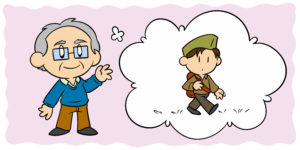As a rule, writers have a pretty solid grasp of how to use words. Of course, when we slip up, that just makes it all the more embarrassing, and a certain type of critic loves nothing more than pointing out even the smallest error. Someone who’s supposed to know all about words getting them wrong? How ironic! Actually… is that ironic?
If you’re capable of giving a definitive answer, congratulations – you’re confident in the use of one of the most hotly debated terms in the language. Still, there’s a difference between knowing what’s ironic and being able to use the different forms of irony in your writing.
That’s why, in today’s article, I’ll be looking at the three major types of irony; how to define them, how to use them, and why they’re such amazing tools for authors.
Irony and sarcasm
Calling something ‘ironic’ is always dicey – it’s a famously tricky term, and one that people love to pick up on. If you’ve ever wondered why irony is so hard to define, there are two answers:
- There are multiple types of irony and,
- Over time, other words have encroached on irony’s meaning.
So, first things first, what are the common types of irony?
Verbal irony
Verbal irony is the use of words to convey something other than their literal meaning. If you accidentally dropped the ice cream cone you just bought and said, “Oh, great!”, you’d be using verbal irony. If someone suggested a terrible, ill-thought-out plan and you replied, “Awesome plan, genius,” you’d be using verbal irony. If you stepped out into a downpour and sighed, “Another lovely day,” you guessed it, you’d be using verbal irony.
Verbal irony conveys intentional meaning – you don’t actually want anyone to believe you think dropping your ice cream is great – and it’s so common that we often don’t even realize we’re using it. It’s perhaps the aspect of our language that aliens would find the most galling – we have all these words, each with a specific meaning, but if we say them in a certain tone of voice and in certain circumstances, they also mean their exact opposites.
Right about now, you might be asking yourself how verbal irony differs from sarcasm, and this is the main occasion where ‘irony’ has become less defined because another word has basically moved in on its territory. In the modern world, ‘sarcasm’ generally means the exact same thing as verbal irony – saying one thing in order to convey the opposite sentiment.
It used to be that sarcasm was a particularly nasty type of verbal irony – that it necessarily conveyed mockery or contempt – but the divide between them has closed. In The Word ‘They’ Can Improve How You Self-Edit, we talked about descriptive grammar (defining grammar by how it’s used) versus prescriptive grammar (defining grammar by how you believe it should be used). Descriptively, ‘verbal irony’ has been almost entirely colonized by ‘sarcasm’. Some academics and prescriptive grammarians may care about keeping the two separate, but the lay reader doesn’t, and you don’t have to either (unless you feel like it).
Situational irony
Situational irony is the type of irony that stirs up the most ire. Simply put, it’s when there’s a novel difference between what could be expected to happen and what does happen. In other words, a situationally ironic event is basically a negative coincidence.
Let’s say that your character is obsessed with safety. They call a personal safety expert, who comes around to check the safety of their home, but even that doesn’t satisfy them. They keep calling the expert, asking them again and again for more and more reassurance, until the expert snaps and shoots them dead.
A person takes extreme measures to seek out personal safety and, because of their efforts, comes to extreme harm. This is situational irony. Orrrrrrr… is it?
The problem is that, in literal terms, coincidences are subjective. Since they’re based on how you expect a situation to resolve, a difference in expectation can completely derail any sense that an event is ironic. One person might say that since the character didn’t take a sensible route to physical safety, it’s not really ironic that they didn’t get it. Another might say that the situation is too convoluted to really be ironic, since it precludes a simple expectation, or that humans are too unpredictable for any outcome to feel obvious.
This type of criticism has famously been applied to the lyrics of Alanis Morissette’s ‘Ironic’. Morissette’s lyrics ask ‘And isn’t it ironic, don’t you think / It’s like rain on your wedding day.’ But, comes the counterargument, there isn’t any reason to expect the weather to be nice for your wedding. You’d prefer it be the case, but the wedding isn’t supposed to somehow improve the weather, and nor does it cause the rain, so there’s no real expectation to subvert. Okay, so that isn’t ironic. What about a situation where someone more directly causes the unexpected outcome?
In Philip K. Dick’s short story ‘Meddler’, a device that can examine the future reveals a more dire outcome every time it’s used. First, things are idyllic. The next time they check, the world is a war-torn hellscape. The next time, every living person has vanished.
The authorities send a time traveler into the future, where he discovers… well, I won’t spoil the story for you. Suffice to say that he survives and returns home, accidentally bringing the devastating force back into his own time. By trying to predict and protect an idyllic future, the characters have ensured the extinction of the human race.
So, is this situationally ironic? Well, if anything is really ironic, then yes, it is, but we can see how someone might disagree. Within the world of the story, is it really a foregone conclusion that seeing the future will help you keep it as it is? Outside of the story, don’t we know enough about the genre to see this ending coming? Isn’t this situation just a little too complex to be able to say that we ‘expect’ things to turn out fine? In that case, how can we say that the disaster that unfolds is ironic?
You could argue that situational irony should be defined by what the average person would expect to happen, but there is no average person to make the final decision, and anyone who disagrees with your line of thinking believes that you’re the weird one. You might argue that situational irony depends on what is intended to happen, or what someone is trying to make happen, but that doesn’t quite gel with applying situational irony to unreasonable characters. If a character hits themselves with a hammer to recover lost memories, is it really ironic when they subsequently incur brain damage, as you’d expect? If someone thought their wedding day would make it sunny, but it rains, is that ironic, or does the reader need to be in on the expectation?
Situational irony is always, to some degree, a matter of taste. That doesn’t mean you can’t identify or create situational irony, it just means there will always be someone who disagrees. At least now you can have the confidence to just roll your eyes and keep on writing, like Alanis.
The benefit of understanding situational irony is that it’s an incredible writing tool. Hundreds upon hundreds of satisfying stories depend on the most basic kinds of situational irony, and the concept of the twist ending is founded upon its basic logic. Likewise, if you subscribe to the incongruity-resolution theory of humor, situational irony has a major role to play in making your readers laugh.
Dramatic irony
Dramatic irony is when a story creates an emotional experience by telling the reader something that the characters don’t know. Again, this type of irony is a common storytelling device.
In chapter one, we see a gun being loaded, but the character who does so is distracted, putting the gun back on the wall and then forgetting about it. In chapter seven, another character picks up the gun and, assuming it isn’t loaded, starts messing around with it. This character assumes they’re safe, but the reader knows they’re in danger, and this creates a particular type of suspense.
Note that it’s not just that the reader knows something the characters don’t. If, for example, you’ve read Shutter Island and then you see the movie adaptation, you’re not experiencing dramatic irony just because, unlike the characters, you now know everything that’s going to happen. Instead, dramatic irony is built into the fabric of the story – you don’t just happen to know something the characters don’t; the scene is built around the difference in understanding.
Shakespeare is full of this type of irony. The final, tragic misunderstanding of Romeo and Juliet is predicated on the fact that the audience knows Juliet is feigning death, but Romeo doesn’t. This is heightened by the messenger who has been sent to warn Romeo of this fact – the audience catches their breath, understanding a truth that Romeo could find out any second, and which would entirely change the decisions he makes.
To see the value of dramatic irony, you only have to consider this scene without it. If the audience thought that Juliet really was dead, the scene would be about the shocking twist when she wakes up, not the mounting dread and suspense as Romeo barrels towards tragedy based on a misunderstanding.
Each has its place, but the latter approach tends to keep its impact over multiple readings. After all, the whole point of dramatic irony is that you know something the characters don’t, and that experience doesn’t change, no matter how many times you see the story play out. It’s for this reason that dramatic irony can be found in so many enduring stories; it’s a device that keeps its potency whether this is the first time you’re reading the story or the twentieth.
Other types of irony
As we’ve already explored, lots of people have lots of opinions about irony, and that means that definitions can be fluid. Is Socratic irony – the act of pretending to know less than you do in order to better interrogate someone’s viewpoint – a unique form of irony, or is it just a mixture of the above forms? Is cosmic irony, in which the fates toy with us despite our wishes, unique, or is it just dramatic irony from another perspective? Is historical irony, in which distance makes real events feel situationally ironic, worth our time?
Personally, I think the three types of irony we’ve already covered form the necessary practical understanding for using irony in your own work, but irony wouldn’t be irony if it wasn’t beset on all sides by competing definitions. Only research holds the answer that will suit you best.
Potent irony
In all of its forms, irony is about the difference between what seems to be and what actually is. Whether drawing on the humor of situational irony or the suspense of dramatic irony, playing with reader expectations is one of the main ways an author constructs a ripping yarn.
Being able to identify the exact type of irony you’re using may shore up your qualifications as a wordsmith (although there’ll always be someone who disagrees), but what’s more important is understanding how to use the different types of irony in your writing.
If you’re already using the tools described above, congratulations – you just learned the precise definitions of things you’re already doing; here’s hoping it comes up in a quiz. If, however, you haven’t tried any of the above, I strongly suggest that you start experimenting.
Which types of irony show up in your writing, and what are some examples from your favorite works? Let me know in the comments, and check out The Author’s Guide To Melodrama (And What It Can Do For You) and The Secret Art Of Writing A Surprising Plot Twist for more on making irony your own.





